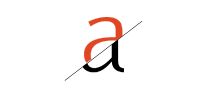Posted by advertage September 19, 2021
Content
Traditionally in project management, Lean PM is a way of eliminating waste in processes and making sure the people involved work effectively together. It streamlines the handoffs between teams, eliminating downtime. A common feature of lean working is to only work on one project at a time. Sometimes that’s because the objective wasn’t defined particularly well at the outset.
- At some point in the year, the supervisor should hold a formal discussion with each staff member to review individual activities to date and to modify the goals and objectives that employee is accountable for.
- The four functions, summarized in the P-O-L-C figure, are actually highly integrated when carried out in the day-to-day realities of running an organization.
- Most information flow is one-way, back to Japan where decisions are made.
- Your personal network provides access to external resources and referrals; your operational network helps you get the work done.
Nonmonetary pay informative post Includes benefits that do not involve tangible value. Direct pay Employee’s base wage Indirect pay Everything from legally required programs to health insurance, retirement, housing, etc. Because paying a wage is a standard practice, the competitive advantage can only come by paying a higher amount. Incentive pay A bonus paid when specified performance objectives are met. May inspire employees to set and achieve a higher performance level and is an excellent motivator to accomplish goals.
Cash Basis Of Accounting
Companies like Procter & Gamble and InnoCentive are tapping social networks of scientists to improve their products. Facebook was started by then-college student Mark Zuckerberg in 2004 as a way of connecting a social network—specifically, university students. Since then, Facebook has changed the way organizations connect as well. Some companies https://ahmad.leadsdeveloper.com/8-bets-information-pga-us-open-2021-just-take-find-out/ maintain a physical presence on Facebook that allows consumers to chime in about their passions for corporate offerings, news, and products. Starbucks has adopted this model, asking consumers to help them revive their product lines and image. Realizing the need for help and direction, the Denharts promoted from within the company to help initiate change and strategic growth, and in 1995, Phil Iosca took the strategic lead as CEO.
A Beginners Guide To Pairs Trading
Strongly global learners who lack good sequential thinking abilities, however, may have serious difficulties until they have the big picture. Your preference for one category or the other may be strong, moderate, or mild. If you always act before reflecting, you can jump into things prematurely and get into trouble, while if you spend too much time reflecting, you may never get anything done. Know why individual- and group-level performance goals need to be compatible. Is there really a way to achieve a triple bottom line in a way that actually builds up all three facets of performance—economic, social, and environmental? Advocates of CSR understandably argue that this is possible and should be the way all firms are evaluated.
Who wouldn’t love to see their company grow month-over-month? But sometimes, sales are highly dependent on the season and the mood of the customers. Sales Growth Year-to-date indicates the pace at which your company’s sales revenue is increasing or decreasing.
Gross Profit, Operating Profit And Net Income
Firms pursuing a differentiation strategy are vulnerable to different competitive threats than firms pursuing a cost-leader strategy. Customers may sacrifice features, service, or image for cost savings. Price-sensitive customers may be willing to forgo desirable features in favor of a less costly alternative. This can be seen in the growth in popularity of store brands and private labels. Often, the same firms that produce name-brand products produce the private-label products. The two products may be physically identical, but stores are able to sell the private-label products for a lower price because very little money was put into advertising to differentiate the private-label product.
When comparing the two debit spreads, it’s clear to see that the downside of buying an ITM option and selling an OTM option carries more risk relative to the potential reward than buying an OTM debit spread. The downside is that buying ITM options results in a more expensive spread, which means there’s more loss potential compared to buying a vertical spread with OTM options. The two debit spread strategies are the bull call spread and the bear put spread .
Organizational Loyalty Identification with and allegiance to organizational leaders and the organization as a whole, transcending the parochial interests of individuals, work groups, and departments. Representative behaviors include defending the organization against threats, contributing to its good reputation, and cooperating with others to serve the interests of the whole. Organizational Compliance An orientation toward organizational structure, job descriptions, and personnel policies that recognizes and accepts the necessity and desirability of a rational structure of rules and regulations. Obedience may be demonstrated by a respect for rules and instructions, punctuality in attendance and task completion, and stewardship of organizational resources. Individual Initiative A pattern of going well beyond minimally required levels of attendance, punctuality, housekeeping, conserving resources, and related matters of internal maintenance.
Identifying numerous examples of this pattern in social behavior, Gersick found that the concept applied to organizational change. She proposed that groups remain fairly static, maintaining a certain equilibrium for long periods. Change during these periods is incremental, largely due to the resistance to change that arises when systems take root and processes become institutionalized. In this model, revolutionary change occurs in brief, punctuated bursts, generally catalyzed by a crisis or a problem that breaks through the systemic inertia and shakes up the deep organizational structures in place. At this point, the organization or group has the opportunity to learn and create new structures that are better aligned with current realities.
